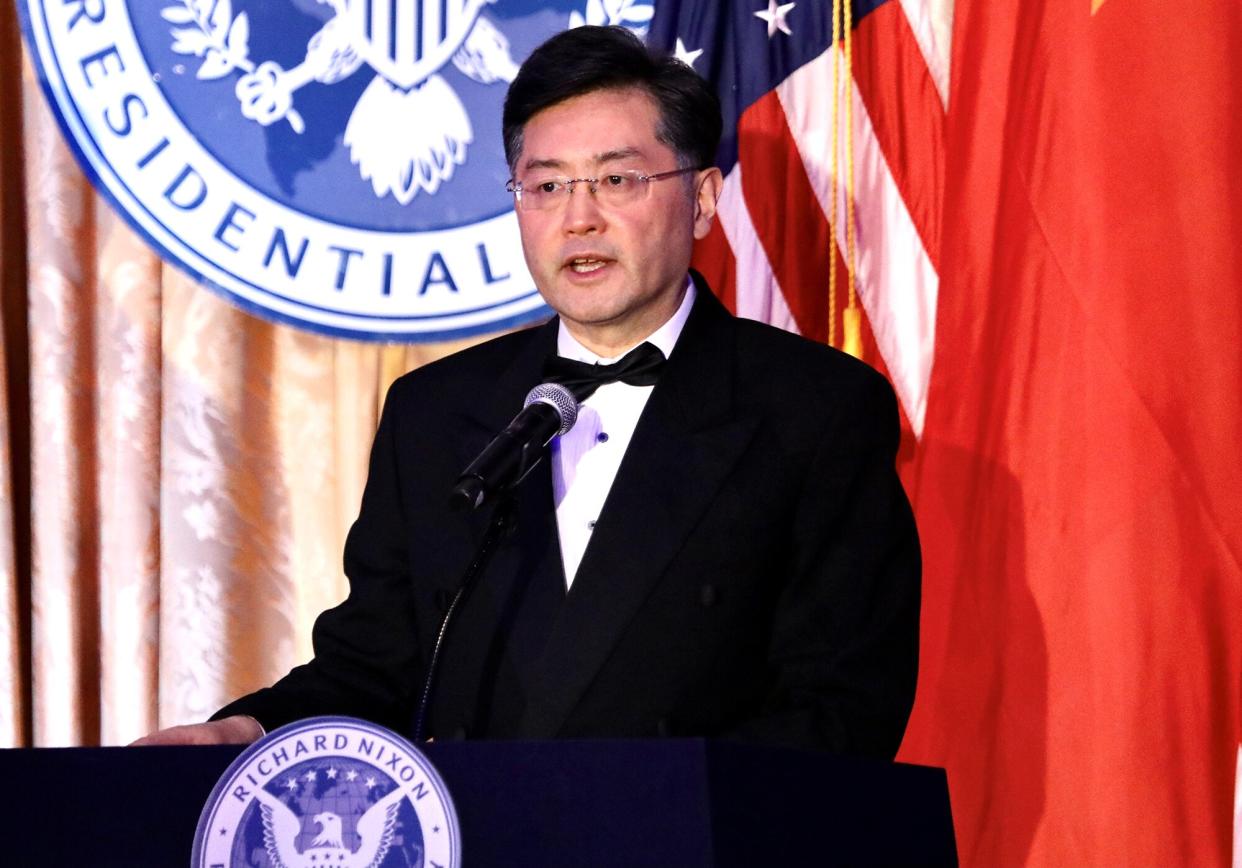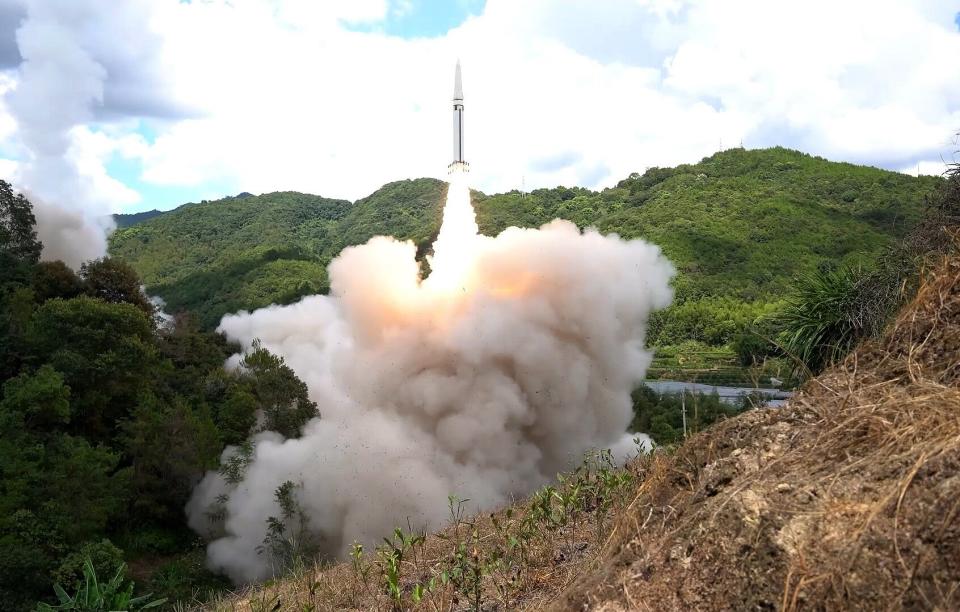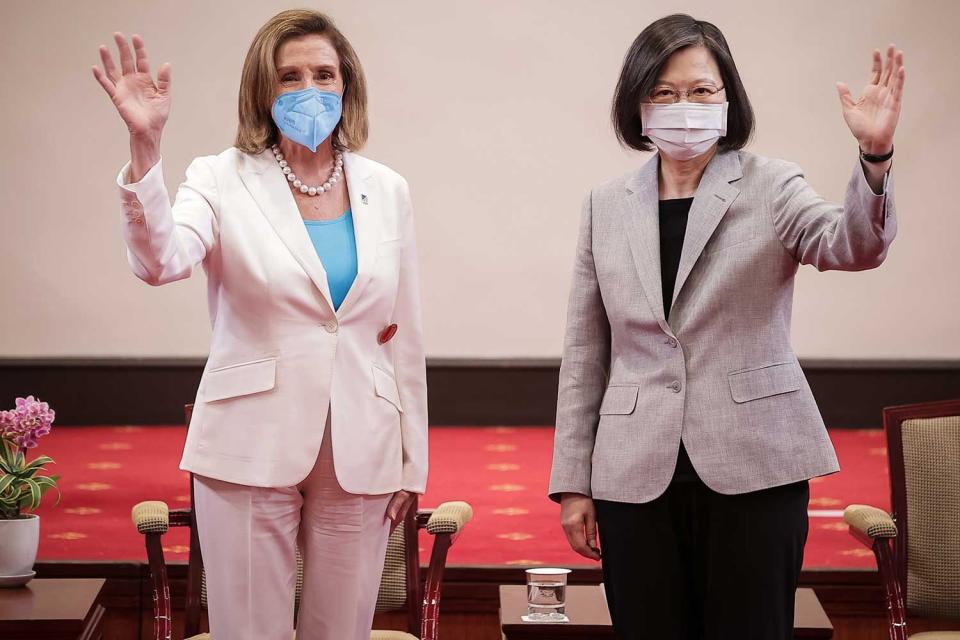Chinese Ambassador Summoned to White House After Missiles Fall Near Taiwan's Coasts

Xinhua via Getty
China's Ambassador to the U.S. was summoned to the White House Thursday after his country conducted military activities near Taiwan following House Speaker Nancy Pelosi's defiant visit this week to the self-governing island that China considers its territory.
According to a Chinese state broadcaster, the Eastern Theater Command of the People's Liberation Army engaged in long-range, live-fire exercises and "precision strikes" on eastern parts of the Taiwan Strait, The Washington Post reported. Taiwan's Defense Ministry said the 11 missiles hit waters off the island's northeastern and southwestern coasts on Thursday afternoon.
On Wednesday night, Chinese naval ships and planes also conducted drills in waters around Taiwan, crossing the halfway point between the island and mainland China known as the median line, Taiwan's defense ministry said, calling it a "highly provocative act," CNN reported.
"After China's actions overnight, we summoned [People's Republic of China] Ambassador Qin Gang to the White House to démarche him about the PRC's provocative actions," National Security Council spokesman John Kirby said in a statement, according to CNN and the Post. "We condemned the PRC's military actions, which are irresponsible and at odds with our long-standing goal of maintaining peace and stability across the Taiwan Strait."

Xinhua via Getty
In summoning the Chinese ambassador to condemn through diplomatic channels the military actions, the White House also told Qin that the U.S. hopes to continue communications and reiterated that U.S. policy on China and Taiwan has not changed.
America's long-standing One China Policy recognizes Beijing as the only legitimate government of China.
"We also made clear that the United States is prepared for what Beijing chooses to do," Kirby said in the statement. "We will not seek and do not want a crisis. At the same time, we will not be deterred from operating in the seas and skies of the Western Pacific, consistent with international law, as we have for decades — supporting Taiwan and defending a free and open Indo-Pacific."
Nancy Pelosi touched down in Taipei Tuesday and met with Taiwan's President Tsai Ing-wen the next day as part of her defiant visit to the island.
China's strong objection to the House speaker's trip, which made her the highest-ranking U.S. official to visit Taiwan in a quarter century, came with warnings and ignited concerns among the American military as well as inside President Joe Biden's White House.
"Our discussions with Taiwan leadership will focus on reaffirming our support for our partner and on promoting our shared interests, including advancing a free and open Indo-Pacific region," Pelosi said in a statement released after her arrival in Taipei. "America's solidarity with the 23 million people of Taiwan is more important today than ever, as the world faces a choice between autocracy and democracy."

Getty
Pelosi went ahead with the trip despite warnings from Chinese officials, including Foreign Ministry spokesperson Zhao Lijiang, who said last week: "If the U.S. side insists on making the visit and challenges China's red line, it will be met with resolute countermeasures. The U.S. must assume full responsibility for any serious consequence arising thereof."
Never miss a story — sign up for PEOPLE's free daily newsletter to stay up-to-date on the best of what PEOPLE has to offer.
Before his White House meeting, which was first reported by The Washington Post, Qin wrote in an op-ed for the paper about Pelosi's visit.
"By order of succession, House Speaker Nancy Pelosi (D-Calif.) is the third-highest-ranking official in the U.S. government. Traveling in a military aircraft, Pelosi paid a high-profile 'official visit to Taiwan' this week, as her office described it in her arrival statement, and was given full-protocol treatment by Taiwan's Democratic Progressive Party authorities, who make no secret of pursuing independence in their party platform. Such a visit has openly broken America's commitment not to develop official relations with Taiwan," the Chinese ambassador wrote.
"These are extremely irresponsible, provocative and dangerous moves."

